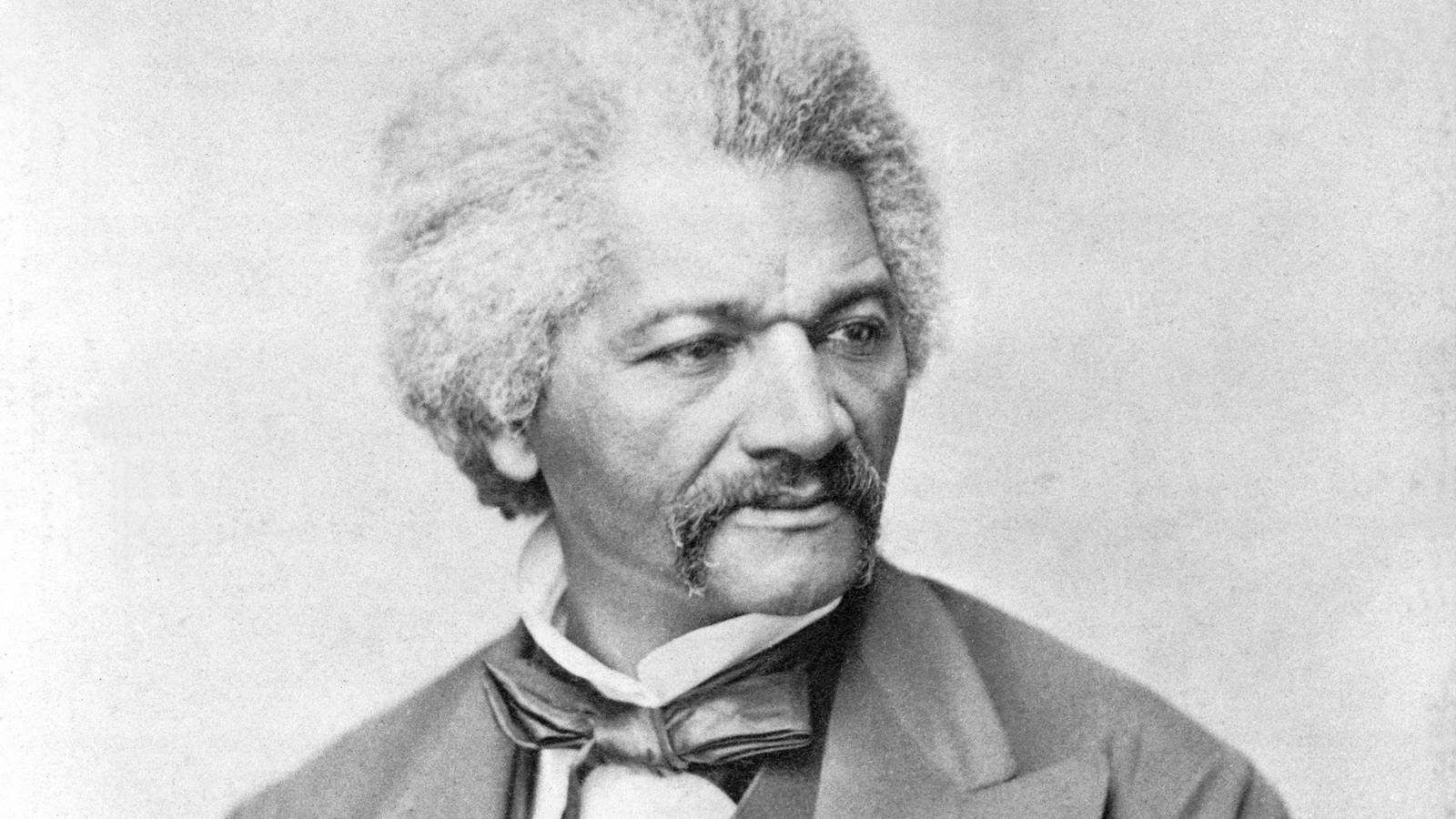
Frederick Douglass, 1870.
Library of Congress
Frederick Douglass and the Republican party
While watching the debacle that was the sixth out of 15 attempts by Republicans to elect a Speaker for the United States House of Representatives, I heard Scott Perry of Pennsylvania try to remind the racially and ethnically diverse Democratic members of the House that Frederick Douglass was a Republican. His intention must have been to suggest that were he alive today, Frederick Douglass would identify with Scott Perry and the members of the Republican Caucus in Congress. What Scott Perry needed then and now is a history lesson on Mr. Douglass.
For those who may not know, Frederick Douglass was born into slavery in Maryland in 1817 or 1818. He escaped the brutality heaped upon him because he dared to resist the authority of a “slave breaker” named Edward Covey. He became a leading voice for the abolition of slavery. He helped recruit African Americans to serve in the Union army during the Civil War. He advocated for voting rights for African Americans and for women. He was the editor of a newspaper called The North Star. He was a frequent guest of Abraham Lincoln to the White House. He was one of the most powerful orators of the 19th century. President Benjamin Harrison appointed him as U.S. Ambassador to the Caribbean nation of Haiti.
It is true to say that Frederick Douglass was a Republican, but history reminds us that were two reasons for that affiliation. First, because at that time the Republican Party was the political home of the anti-slavery and abolitionist movements in the United States. Second, because at that same time the Democratic Party was the center of the pro-slavery movement in this country. Most, if not all the leaders of the Confederate States of America were members of the Democratic Party, and their primary reason for seceding from the United States was to fight for their right to hold people like Frederick Douglass in chains. Two things should be made clear. First, Frederick Douglass would never have sought membership in the 19th-century Democratic Party. Second, if Frederick Douglass had sought to join the Democratic Party of the 19th century, he would not have been welcomed into their ranks.
Now we come to Scott Perry and the Republican Party of 2023. It is bad enough that Scott Perry is an election denier who tried to keep Donald Trump in office after Trump lost the 2020 presidential election. Perry was among those members of the Republican Party that helped plan and subsequently seek to justify the insurrection that took place at the U.S. Capitol on January 6, 2021. Then, on January 5, 2023, Perry nominated Byron Donald, an African American Republican from Florida, to be the Speaker of the House. It was in that context that he tried to remind the Democratic Caucus, led by another African American named Hakeem Jeffries, that Frederick Douglass was a Republican.
You cannot draw a straight line from the 19th-century Republican Party of Abraham Lincoln, Thaddeus Stevens, Charles Sumner, and Ulysses S. Grant to the 21st-century Republican Party of Donald Trump, Matt Gaetz, Lauren Boebert, Ted Cruz, Josh Hawley, and Marjorie Taylor Greene. The forces of racial segregation were comfortably housed in the Democratic Party well into the 1960s. However, when Democrats began working to end segregation in this country, many white Democrats started leaving that party.
Four things must be mentioned that account, in large part for white Southern Democrats leaving that party and becoming Republicans. First, there was a walk-out from the Democratic National Convention in 1948 by the entire Mississippi delegation and half of the Alabama delegation to protest the platform on which Harry S. Truman would be running that would include a plank advancing a civil rights agenda. Truman was running for the Democratic Party nomination for a full term as President of the United States. Truman had been Vice President, and he assumed the presidency to finish the unexpired term of Franklin D. Roosevelt, who had died in April of 1945.
While watching the debacle that was the sixth out of 15 attempts by Republicans to elect a Speaker for the United States House of Representatives, I heard Scott Perry of Pennsylvania try to remind the racially and ethnically diverse Democratic members of the House that Frederick Douglass was a Republican. His intention must have been to suggest that were he alive today, Frederick Douglass would identify with Scott Perry and the members of the Republican Caucus in Congress. What Scott Perry needed then and now is a history lesson on Mr. Douglass.
The second action that caused white Southern Democrats to abandon the Democratic Party was the decision by President Harry S. Truman to end segregation in the United States Armed Forces through Executive Order 9981, issued on July 26, 1948. Southern Democrats refused to endorse either of those actions. Instead of supporting the advances being proposed by the Democratic National Convention or the actions of a Democratic president, they formed a new political party that they named the States’ Rights Democratic Party, which came to be known as the Dixiecrat Party. They nominated Senator Strom Thurmond of South Carolina to be their candidate for President of the United States in the 1948 election. This is powerfully reported in the book “Half American: The Story of African Americans Fighting World War II at Home and Abroad,” by Matthew F. Delmont.[i]
Those who opposed the desegregation of the military in 1948 would be amazed to learn that three African Americans have risen to the highest levels of the U.S. armed forces. Colin Powell became Chairman of the Joint Chiefs of Staff in 1989. Lloyd Austin became the current Secretary of Defense in 2021. And Barack Obama, as President of the United States of America from 2008-2016, was Commander-in Chief of all branches of the military.
The third contributing factor to the move by many white Southern politicians to become Republicans came through a 1956 document called “Declaration of Constitutional Principles” but more commonly known as “The Southern Manifesto.” More than ninety Democratic members of the United States Congress representing states of the old Confederacy and led by Senator Walter George of Georgia vowed to resist any attempts at ending racial segregation in this country, especially in public schools as called for in the 1954 Brown v. Board of Education ruling. The Southern Manifesto called upon Southern states to “use every lawful means to resist implementation” of the Brown decision.[ii]
The fourth contributing factor in the shift of white Southern Democrats to the Republican Party came when President Lyndon Johnson signed into law the 1964 Civil Rights Bill and the 1965 Voting Rights Act. Most white Southern Democrats in Congress joined in a filibuster to prevent the 1964 bill from being considered, and Republican Senator Barry Goldwater joined them in that effort. Goldwater became the Republican Party nominee for president in 1964, and that created a split within that party that caused the shift away from the moderate Republicans of the northeast that had long defined that party, and toward the political values that are now present in the Make America Great Again language used by both Ronald Reagan and Donald Trump.
When Johnson signed the 1965 Voting Rights Act, he is reported to have said, “there goes the South” meaning that white Southern members of the Democratic Party would now join the increasingly conservative Republican Party. The once solidly Democratic South become the focus of Republican Richard Nixon’s “southern strategy” where he focused on winning over to his 1968 presidential campaign those disgruntled white Southern Democrats that opposed civil and voting rights for African Americans. That strategy remains in effect to this day. Placing restrictions on voting rights in ways that seem targeted to reduce the strength of African American voters appears to be one of the chief objectives of the Republican Party in 2023.
While the Republican Party is now under the spell of Donald Trump and under the influence of the Freedom Caucus within the Republican Party, the Democratic Party has responded by electing Hakeem Jeffries of New York to be the first African American to be the leader of either party in the history of the United States Congress. I have heard that politics can make for strange bedfellows. However, in light of history, I cannot imagine any scenario in which Frederick Douglass would be “in bed” with Scott Perry and today’s Republican Party.
Dr. Marvin A. McMickle is interim executive minister, Cleveland Baptist Association, American Baptist Churches, USA. He served as president of Colgate Rochester Crozer Divinity School, Rochester, New York, from 2011 to 2019.
The views expressed are those of the author and not necessarily those of American Baptist Home Mission Societies.



